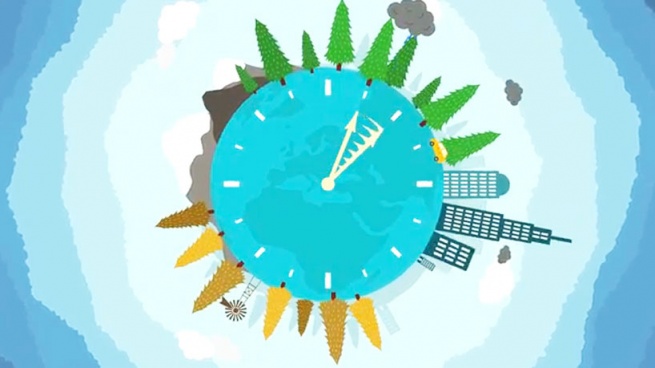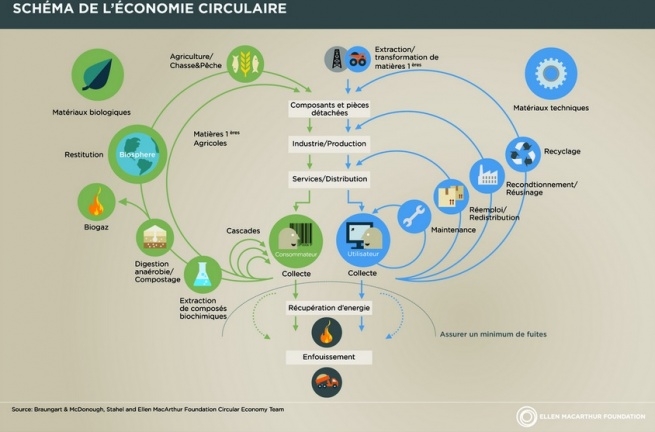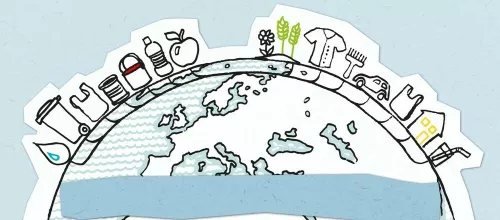The environment and the circular economy
Early in August 2015, US President Obama launched an initiative to reduce greenhouse gas emissions in the USA and by extension reduce the country’s impact on climate change. Some have signalled it as the USA finally doing something. Others have dismissed it as not enough and merely a President trying to shore up his legacy. However, does this debate about climate change and the environment have anything to do with us in Europe? Indeed, does protecting the environment really matter? Is the environment important to you and me? Are all of these stories of climate change real?

The circular economy and the EU
Within the past decades there has been a growing realisation of the need for greater conservation of resources. In Europe, this has perhaps best been recently manifested through concepts such as low carbon economy, resource efficiency and circular economy. The concepts of the circular economy, which were developed in the 1970s by the Swiss architect and environmentalist Walter Stahel, seek to move away from a ‘linear’ throw-away society, to a more ‘circular’ one that minimises, reuses and recycles resources. The concepts call for action at all stages of the life cycle of products, from the extraction of raw materials, through design, production, distribution and consumption and disposal (or sustainable management, for example, repair, remanufacture or re-use). They aim to minimise waste, promote competitiveness and innovation, and thus contribute to economic growth and job creation. . For example, in May 2015, France’s National Assembly banned supermarkets larger than 400m2 from disposing of their food to landfill. Instead, they will be expected to donate it to charities, or turn it into animal feed, compost or as a source of energy. This move should result in significant reduction in waste across the supply chain and so should produce benefits beyond supermarkets in France.
According to a recent report from the Ellen MacArthur Foundation and McKinsey, the material cost savings from adopting a more circular approach in Europe could be $US340 - 630bn per annum, by 2025. Other studies suggest an efficient use of resources until 2030 can lead to a reduction of raw materials in Europe in the range of 17 - 24%, with a saving of about 630 billion Euros and a creation of not less than 180,000 jobs. Despite the discrepancy in numbers, what is not in dispute, are the significant economic, environmental and social potential of a shift towards a more circular approach.
After his March 2015 visit to Tacloban, the Philippine city devastated in 2012 by typhoon Haiyan, Pope Francis published an encyclical (the highest form of papal teaching), entitled Laudato Si' (be praised), in June 2015. Widely seen as the Vatican’s clarion call before December’s UN summit, in it, the Pope urged not only Catholics, but world leaders and ordinary individuals to take “urgent” action to “drastically cut” CO2 emissions. He is also expected to lobby political and faith leaders at the UN General Assembly in September, in New York. The editorial of the Financial Times of 17 June 2015 called his encyclical “striking and courageous” for its “overt political content”. It also noted that at the heart of the 184-page letter was “the charge that climate change is the product of the developed world’s addiction to consumption and convenience. This will not change unless human attitudes change as well”. However, it has also been met with much consternation amongst conservatives, particularly within some political circles in the USA.
The European Commission is currently in the process of consulting on a revised circular economy package, with the aim of having the measures in place by autumn of 2015. When the previous version of the package was withdrawn in December 2014, Italy’s Environment Minister Gian Luca Galletti had said that it was a “negative signal” about Europe’s commitment to climate change, and odds with the EU’s push for growth. He said the withdrawal of the draft law on waste in particular "would be contrary to what we did in Lima" (at the UN climate change talks). There is an urgent need for the Commission to ensure that the final package is indeed, ‘ambitious’ and ‘challenging’, but also meets the environmental and economic needs of Europe.

What can we as consumers do?
As consumers there are a number of things that we can do, including: (1) Support the goods of your local producers and suppliers. By supporting your community, you not only support your local economy, but also for example, reduce the transport miles required; (2) Think before you buy. Choose products that are environmentally friendly (e.g. energy efficient, long lasting or can be recycled); (3) Lobby manufacturers to include more recycled and recyclability materials in their products. If we can recover some of the inherent value that is within our waste materials and resources, particularly the critical earth materials (e.g. Terbium, Neodymium, Holmium and Ytterbium, which are found in items such as lasers, fibre optics, steel additives, and mobile phones), then we could build the resilience of our economies and reduce our vulnerability to high prices and market vulnerability; (4) Educate, educate, educate. I was recently in Italy and Germany and it was evident that apart from the academics and the policy makers, the circular economy’ has not found its way into the thinking of the ‘ordinary person on the street’. Few people outside of the ‘usual’ circles are even aware that there is currently an EU consultation out on the issue. While it is true that issues such as the Greek financial crisis, immigration and international conflicts in the Middle East, Ukraine, and elsewhere would inevitably dominate news heading lines, it is important there should be dialogue on the environment and our resources, as well. As consumers we need to become more aware of what the issues are, so that we can make more informed decisions.
There is no doubt that the environment and what is happening to it, and the impact of man is an emotive and contentious issue. These are issues that evoke debate and will continue to do so. However, what is beyond doubt is the importance of the environment to all of us and that we need to take care of it. The concepts of the circular economy offer us the potential not only to conserve and value our resources, but also to promote competitiveness and economic growth in Europe.
Paris, France will play host to a United Nations (UN) conference in December 2015, at which a new global climate change agreement will be adopted and implemented from 2020. The conference will be the 21st annual session of the Conference of the Parties (COP21) to the 1992 UN’s Framework Convention on Climate Change (UNFCCC) and the 11th session of the Meeting of the Parties (CMP 11) to the 1997 Kyoto Protocol.
Dr Terry Tudor is a senior lecturer in Waste Management at the University of Northampton, UK, and a visiting professor at the University of Brescia, Italy. His personal blog can be found at the link below: http://mypad.northampton.ac.uk/terrytudor/







